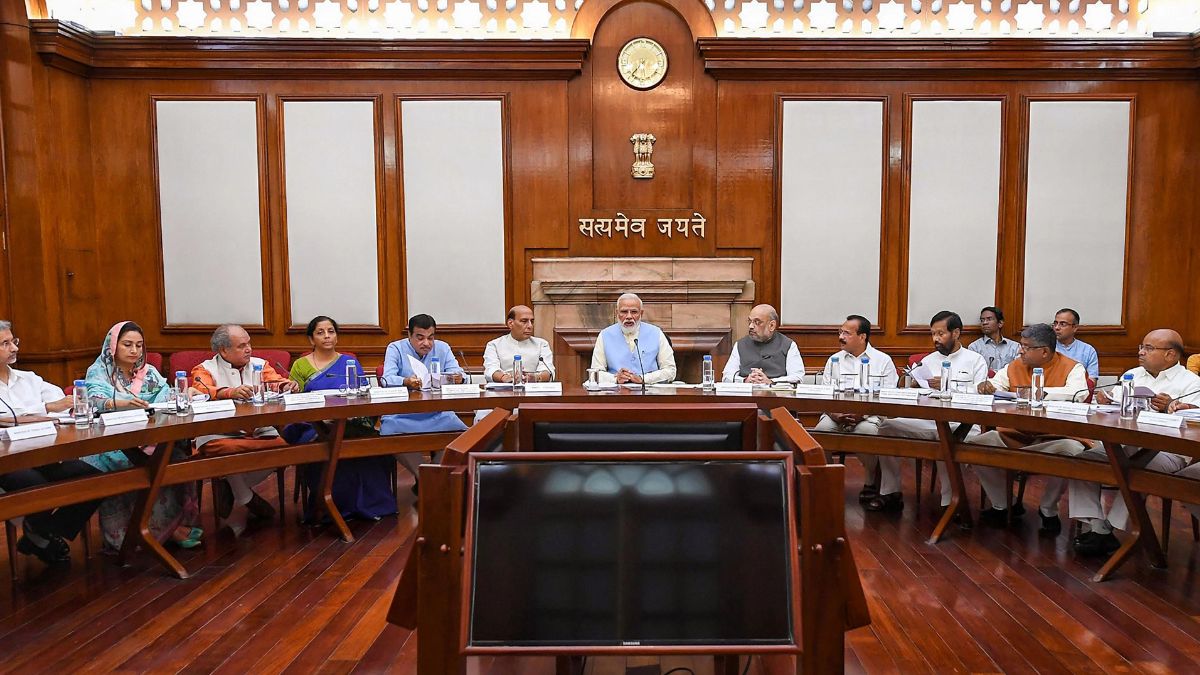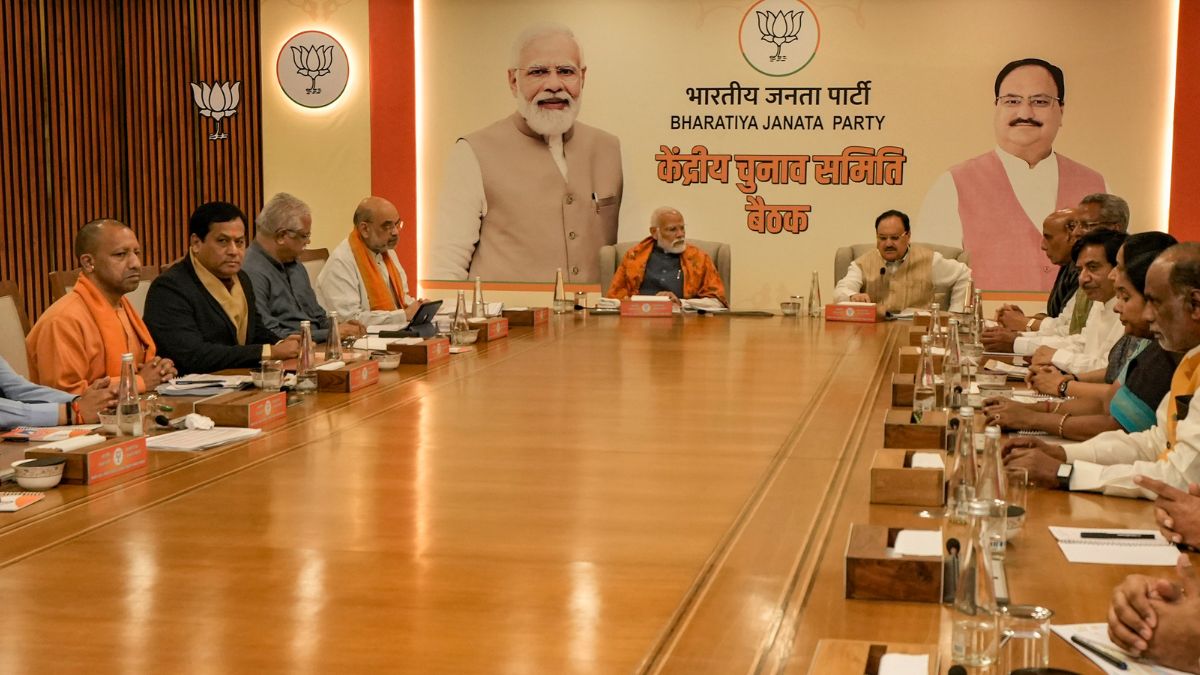For the first time in the history of Jammu and Kashmir, the Congress and National Conference faced a complete whitewash in the troubled state with the Bharatiya Janta Party (BJP) and the Peoples Democratic Party (PDP) sharing the six Parliamentary seats between them. The most definitive verdict, perhaps, was the defeat of former Union minister Dr Farooq Abdullah, who has never lost an election before this in a political career spanning 32 years.
It is a verdict that has not just surprised political pundits, but has also mirrored the ground realities for the ruling coalition in the state government. While PDP overpowered NC in its traditional bastions in Kashmir, an apparent Modi wave delivered it for three BJP candidates, not just in Jammu but also in the arid desert of Ladakh.
What’s more, if the current trend sustains till the Assembly elections later this year, the BJP could engineer a never-before performance due to take place in six months.
In Kashmir, the Peoples Democratic Party (PDP) fought a lonely battle against the National Conference-Congress alliance. At every rally, the ruling alliance told people that a vote for the PDP meant a vote for Modi. But surprisingly enough, the voters have not bought into the secularism Versus communalism battle, despite the fact that the ruling coalition made it the principal focus of its campaigning.
The PDP won all the three seats in the valley.
Party president Mehbooba Mufti triumphed over her main contender NC’s Mirza Mehboob Beg by 65,417 votes in south Kashmir. Former deputy chief minister Muzaffar Hussain Beigh won with a margin of 39,219 votes in north Kashmir.
But, needless to say, it was the the PDP’s Tariq Karra who shocked everyone, when he managed to win the Srinagar seat, a traditional NC hub, vanquishing NC patron Dr Farooq Abdullah. Karra won Srinagar by almost 42,280 votes, handing the former chief minister a defeat the National Conference will never forget.
The National Conference-Congress pre-poll alliance simply did not work. There were reports of cross voting throughout the state. Converting a voter to support an ally is the real headache in politics. And the NC failed to get Congress workers’ support, for example in the Congress base in Rajouri-Poonch. This triggered a reaction. In the border town of Uri, Congress Sarpanchs were seen asking people openly to vote for PDP candidate Muzaffar Beigh. This was repeated throughout the valley.
The Congress’s state chief Prof Saif-ud-din Soz said there was a deep hatred against the National Conference prevalent in the Valley. Little wonder then that the Vally elected three PDP MPs.
The pre-poll alliance was carefully structured to defeat the simmering anger against the ruling coalition. Under the agreement, National Conference contested three seats from Kashmir Valley while Congress contested two seats of Jammu and Udhampur and one in Ladakh.
In Jammu, as soon as the results were announced on Friday, BJP workers and common people filled the streets of Jammu, celebrating the spectacular victory by the party’s candidates in Jammu and Udhampur Lok Sabha constituencies. And even they were taken by utter surprise when the results of the Ladakh constituency were declared and the BJP’s Thupstan Chhewang won a cliffhanger contest by a margin of just 36 votes. Needless to say, the festivities doubled.
“Har Har Modi, Ghar Ghar Modi is reverberating throughout the city. Men, women, children and old are on the streets celebrating. These people had voted for a dream, and that dream has come true. The vote, I think, was not for BJP state leaders but for Modi,” noted social activist Praveen Gupta told Firstpost on the phone.
Among the three seats BJP won in the state, the most difficult to win was Udhampur. Congress stalwart Ghulam Nabi Azad was facing the BJP’s Dr Jitendra Singh, but Azad failed to make a successful maiden bid from his home state losing to first-timer Singh. He was defeated by 60,976 votes. Singh polled 4,87,369 votes while Azad got 4,26,393 votes.
And it is this win that the state BJP unit will cherish for years to come. For the Congress had considered Azad, the former chief minister of Jammu and Kashmir, as being the only candidate acceptable among both Hindus and Muslims. Even the rebel BJP leader Chaman Lal Gupta, who won this seat three times, had fielded his son Anil Gupta in an attempt to divide the Hindu votes, but that too didn’t work.
In Jammu, even though Madan Lal Sharma of the Congress was facing anti-incumbency, no one had imagined that he would be trounced by BJP state President Jugal Kishore by 2,57,280 votes. The urban and rural voters of Jammu Lok Sabha Constituency seem to have spoken in one voice favouring BJP. “Modi’s two rallies in Jammu made that possible," says Ankit Lal, a journalist based in Jammu. “Otherwise the BJP’s Jugal Kishore Sharma, who won by a staggering margin of 2,57,280 votes, would not even be able to get 200 people to listen to him,” he said.
The defeat prompted Chief Minister Omar Abdullah to say his party will reconsider the future of its alliance with the Congress. A visibly upset Omar said that he did not expect such a comprehensive defeat to the NC-Congress alliance. The defeat, he added, has came as a serious setback to the party.
The National Conference’s defeat, says director of Kashmir Studies Institute Prof Gull Mohammad Wani, will have a major impact on the coming Assembly elections in the state. “PDP has done half of the work for the Assembly elections,” he said. In the last general election, the NC-Congress coalition had bagged 5 out of 6 seats.
Another surprise is that the BJP has doubled its voting percentage in the state by 18.61 per cent in 2009 to 32.4 per cent now. The opposition PDP had made a marginal improvement in its vote share of 20 per cent in 2009 to 21 per cent.
Kashmir has three LS seats that have a cumulative electorate of 37,21,310. At the end of the last phase 11,50,596 participated, a turnout of 30.91 percent. That also means 69.9 percent stayed away.
One cannot help imagine what the result would have been if there had been no boycott call. The ruling coalition could have lost in every single seat by lakhs of votes. This is the right time for Omar Abdullah to check his style of functioning.
)
)
)
)
)